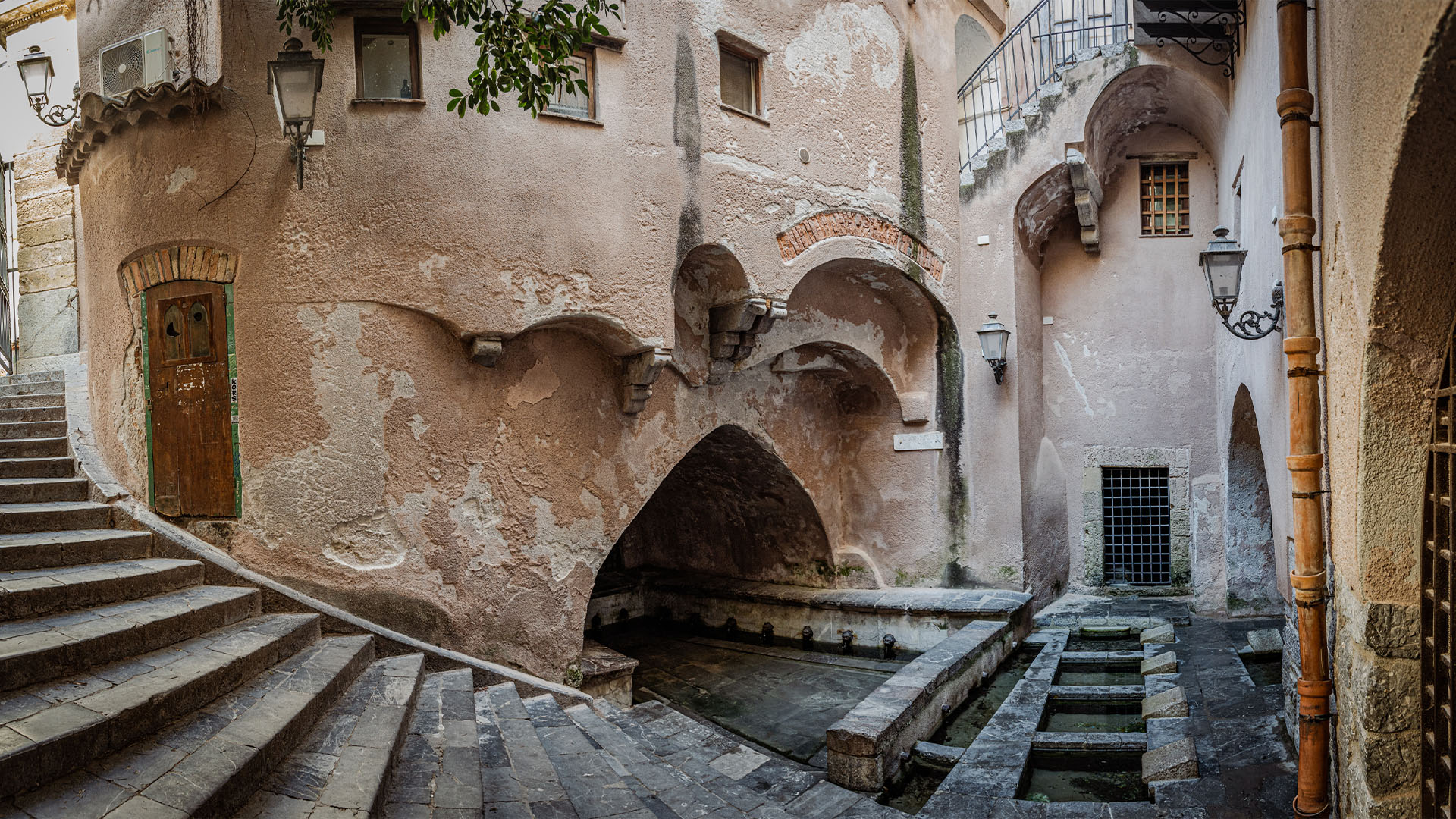
Porta Marina and the Lavatoio of medieval Cefalù
Walking through the streets of the historic center of Cefalù is like entering another era, where every stone, every glimpse tells stories of the sea, of nobles and ordinary people. Nestled between its ancient walls and protected by the majesty of the Norman Cathedral, the city preserves two small medieval jewels that speak of daily life and tradition: Porta Marina and the Medieval Wash House.
Porta Marina, also known as Porta Pescara, is the last of the ancient access doors to the city that has survived through the centuries. Its simple and elegant gothic arch opens directly onto the sea, framing one of the most suggestive views of the old pier. It’s a magical place, where the gaze is lost between the blue sky and the waves of boats, and the sound of the waves seems to tell stories about sailors and merchants.
A few steps away, protected by the shadow of stone houses, is the Medieval Lavatoio, a space full of popular memory. Built in the late Renaissance, it still preserves the ancient system of canalization that conveys the fresh water of the river Cefalino, an underground course that flows gently to the sea. To access it you go down a staircase made of lava stone, smoothed by time and water, called “a lumachella”: a small journey in the journey, which prepares the spirit to enter a place suspended between history and poetry.
Here, once upon a time, the women of the village met to wash their clothes, but also to exchange stories, advice and laughter. The washhouse was not only a public service: it was a meeting point, a feminine microcosm made of ancient gestures and shared words.
Visiting Porta Marina and the Lavatoio di Cefalù is an experience that combines the beauty of nature with the charm of traditions, giving emotions that only places full of history can transmit.
